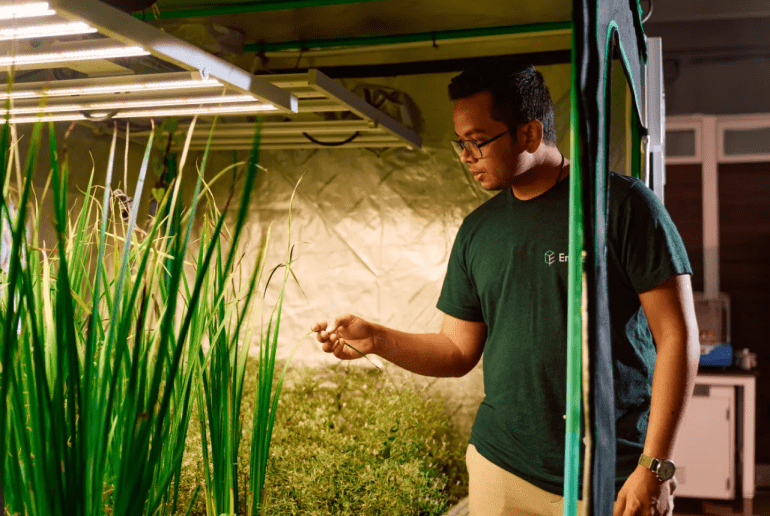- Enveda Biosciences has secured $55 million to integrate AI with traditional healing practices for drug development.
- The company uses AI to analyze plant chemistry and discover potential medical treatments.
- Historical use of plants for similar medical purposes across various cultures is leveraged to identify promising medicinal plants.
- Enveda’s AI model aids in understanding the chemical structure of plants to accelerate the discovery of new drugs.
- The company is preparing to initiate clinical trials for treatments aimed at skin conditions and inflammatory bowel diseases.
- New funding has raised Enveda’s total capital to $230 million, with plans to raise a Series C after clinical trials begin.
- Despite the focus on substances like cannabis and psychedelics, Enveda explores a wide array of natural compounds.
Main AI News:
For ages, humans utilized willow tree bark for pain alleviation, yet it was only in the 1800s that Bayer scientists extracted and patented its key component as Aspirin.
Aspirin exemplifies how many current pharmaceuticals originate from natural remedies. The World Health Organization reports that about 40% of today’s drugs stem from ancestral healing practices.
Despite the notable achievements in converting natural resources into therapeutic agents, it is believed that only a minimal portion of potential natural chemical entities have been identified.
The challenge lies in the labor-intensive process of pinpointing, isolating, and analyzing natural molecules compared to crafting new ones synthetically.
Viswa Colluru, formerly with Recursion Pharmaceuticals, which launched its IPO in 2021, recognized that AI could streamline the search for new drugs from natural sources.
In 2019, after leaving Recursion, Colluru founded Enveda Biosciences in Boulder, Colorado, to probe plant chemistry for medicinal prospects.
Colluru explained to TechCrunch how Enveda leveraged global digital data on traditional plant-based treatments for various ailments.
He noted the historical consistency in plant usage for similar medical conditions across different cultures, despite no direct communication, reflecting millennia of human experiential knowledge.
Currently, Enveda’s database holds records of 38,000 medicinal plants connected to approximately 12,000 ailments and symptoms.
Using AI, Enveda identifies the most promising plants for medical solutions, after which the team conducts experiments in their lab using a sophisticated AI model that deciphers the chemical structure of samples.
“Identifying their structure allows us to target effective molecules that could become future medications,” Colluru stated.
The fruits of Enveda’s labor are becoming visible. The company anticipates starting clinical trials this year for two of its developments aimed at treating skin disorders, like eczema, and inflammatory bowel conditions.
The scientific advancements have drawn substantial investor interest. Enveda recently announced a $55 million Series B2 funding round with contributions from Microsoft, The Nature Conservancy, Premji Invest, and Lingotto Investment Fund, alongside previous investors. This investment boosts Enveda’s total funding to $230 million.
The funding round will enable Enveda to include strategic partners in its capital structure, with plans for a Series C fundraising following the commencement of clinical trials, according to Colluru.
Additionally, Microsoft will provide cloud credits, separately from its financial investment.
While traditional plant-based drug discovery is longstanding, Enveda is among the pioneers integrating AI into this practice. Similarly, Pangea Bio in the U.K. is exploring plant-based drug discovery for neurological disorders.
However, despite the hype around cannabis and psychedelic substances like psilocybin from magic mushrooms, which are reputed to address mental health issues, Enveda focuses on a broader range of natural compounds.
“While the focus may be on cannabis and psychedelics, these represent just a small part of nature’s vast chemical and biological diversity. Exploring even 100 different plants could yield numerous potential pharmaceuticals,” Colluru remarked.
Conclusion:
The strategic integration of AI in traditional plant-based drug discovery by Enveda Biosciences represents a significant evolution in the pharmaceutical industry. This approach not only streamlines the drug development process but also taps into a vast, underexplored reservoir of natural compounds. By harnessing both cutting-edge technology and age-old wisdom, Enveda is uniquely positioned to unlock new therapeutic potentials. This could lead to a broader diversification of the pharmaceutical market and potentially introduce a new era of treatment options, moving away from a heavy reliance on synthetic drugs. The substantial financial backing from major investors underscores the market’s confidence in this innovative approach, indicating a robust interest in expanding the frontiers of medicine through natural and technological resources.

